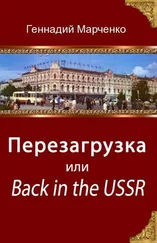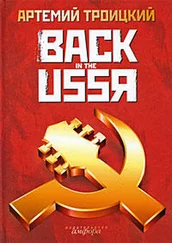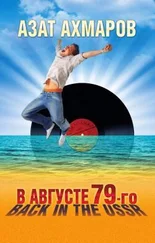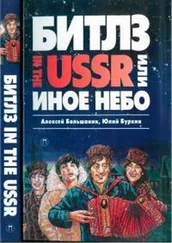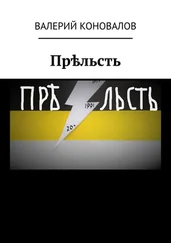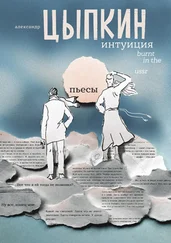I nearly fall victim to this law in the town of Tuapse. A policeman scrutinizes my passport, decides he doesn’t like my face and tears up my document under my nose. Then he arrests me for travelling without a passport. At the police station I try to explain what their colleague has done. They laugh and slap my face a few times. Fortunately they are too lazy to do the necessary paperwork to give me 30 days. Probably they’ve exceeded their quota of tramps in jail that month.
I have 24 hours to leave town. From Tuapse I board the steamer Admiral Nakhimov and sit in the buffet completely indifferent to whether it is taking me north or south. It docks at Novorossisk where I earn a few roubles by carrying boxes of flowers from the pier to taxis. Having money in my pocket at the beginning of the day buys me a breakfast of beer fortified with essence of dandelion. At night I sleep among the feet of giant sailors hurling grenades and charging fascists with bayonets. It might be a Hero City, but its monuments are very draughty.
The town of Novorossisk is the most important oil terminus in the USSR. Vessels from all over the world dock here. I stick to the local port as I know the foreign quays are crawling with plain-clothes police.
A young lad approaches me at a beer-stall, saying he has some business to discuss. Something about him makes me suspicious. Before I have a chance to walk away a police car pulls up and takes me to the spets. My appearance must have given me away.
The spets is a row of cells in the courtyard of the town police station. Eight to ten men are crammed into each stuffy cell. We spend our days playing draughts with bread counters and brewing chefir. A skilled chefirist needs only four sheets of newspaper to kindle a fire that will brew a litre. We have to keep the smoke to a minimum in order not to give ourselves away.
Amongst the guards are a pair of Adyghe twins who are much more humane than the rest. They give me some cardboard with which I make chess pieces. One of them suggests a game but he plays badly and I win with ease. One of my cell-mates whispers: “Idiot — maybe you should try to lose.”
And so I do. It puts the Adyghe in such a good mood he later throws two loaves of bread into the cell. The next day he gives me a mugful of samogon.
That afternoon my chess game is interrupted by shrieks from the courtyard. I stick my head out of the ventilation hole in our cell door and see the police bringing in five girls. One of them, a tall girl with a shaven head, is wriggling between the Adyghe twins and trying to pinch their cheeks. They duck their heads in embarrassment. A camera stands ready in the yard. The bald girl saunters over and stands in front of it, striking exaggeratedly glamorous poses. “Hey, you bastards, get a fucking move on, it’s cold out here!”
“Come on, Vera, stop pissing about,” says the police photographer.
“And what are you staring at?” she catches sight of me.
I pull my head back into the cell as my mates laugh. It hurts me to hear obscenities fall from the lips of such a young and pretty girl.
The girls have been arrested for picking up foreign sailors. The police threaten to tell their workplaces and schools of their ‘crimes.’ Those who show fear are blackmailed by the police for sexual favours; those who can’t produce documents are put in the women’s cell next to ours. It is never empty.
We shout over to each other and pass food and cigarettes across by bribing the guards. Usually the girls have more to give than us poor tramps.
From time to time a fight blows up in the girls’ cell. They need to relieve their tension somehow. Vera can’t exist for one minute without trying to start a fight. Perhaps having her head shaved has traumatised her. They say it is to get rid of lice, but really it’s because it is harder for bald girls to work. Clients are suspicious of their state of health.
I savour my daily exercise in the courtyard, it restores my spirits to look at the sky, hear the noises of the town and feel the rain on my face. One day an elderly man falls into step beside me. He introduces himself as Uncle Misha the Railwayman.
“It’s my first time in the spets. It was my own bloody fault for getting drunk and going to the end of the line. In all my 60 years I’ve never made that mistake. They defrocked me — took away my cap and hammer.”
Uncle Misha is a robber who works the railway lines. “I began my career in the 1920s. I was an orphan — my parents died in the civil war. I soon learned that stations are the best places for stealing. People are tightly packed together and they don’t know their surroundings. I got caught a few times but no one handed me in. People would rather beat me up themselves and leave the authorities out of it. I guess they had their reasons.
“Then I learned how to rob goods wagons. I climbed onto their roofs and let myself down inside. I’d pick what I wanted, jump off the train and sell my haul to a fence. The only tricky parts were keeping an eye out for the guards and jumping off the moving trains. You have to be fit for that.” He glances at my leg.
“When I got older I found a job on the railways. It didn’t last long, but I kept my cap and hammer, the tools of my trade. Since then trains have been my home. I know every station in the USSR. Even the smallest country halt. When I get off at a station the first thing I do is study the timetable. I learn them by heart, both summer and winter versions. They’re my daily bread.”
I laugh. “You remind me of George Peters, a man I read about in a book. He avoided the police thanks to his excellent knowledge of train times.”
Uncle Misha opens his toothless mouth in disbelief: “Did you really read that?”
“Yes, it’s in a book by an American writer, O. Henry.”
Uncle Misha whistles: “Whew! I never thought you could learn a thing from books. Everything in them I already shat out the day before yesterday!”
He takes a surreptitious puff on a roll-up cupped in this hand. “Sometimes I notice a lonely-looking suitcase. Then I wait for everyone to fall asleep. But it drives me mad when some bloody intellectual takes out a book and reads. You can’t tear him away. It’s like trying to snatch a baby from its bottle. But it also works the other way. A man might bury himself in the book so deep you could stuff him up the arse and he’d never notice. So there’s a use for books all the same.
“When everyone’s asleep I get down to business. I grab the case, jump off the train, hide alongside it and wait for the next express. Two or three minutes before it leaves I push the suitcase into an axle-box with my long hammer and then climb inside a carriage. I sit in an empty place, wearing my railway cap so the conductor won’t ask to see my ticket.
“When he’s passed by I start to tell the other passengers stories that I’ve picked up on my travels. They’re always willing to share their food in return for the entertainment. When I’ve eaten my fill and slept a bit I get out at a suitable stop.
“In any new town the first thing I do is memorise the timetable. Then I go to the nearest beer shop for a few drinks. After that I collect empty vodka bottles — only the cleanest ones, mind. I take them out somewhere quiet on the edge of town and fill them with water. I use my bootlaces to close the caps. Then I wait till evening and go back to the station. I wander along the platform with a bottle in my hand and almost always get lucky. My bottle reminds passengers they’re thirsty so they call out: ‘Oi, mate! Where can I get one?’
“‘Not far from here, not far at all. About half a kilometre,’ I tell them.
“The shop might as well be on the moon. The greedy wretches beg me to sell the bottle. I hum and haw until the train is about to depart and then I give in. They even want to tip me. ‘No, no, you’re all right,’ I say to them. As soon as their train starts I hop on one going in the opposite direction.”
Читать дальше
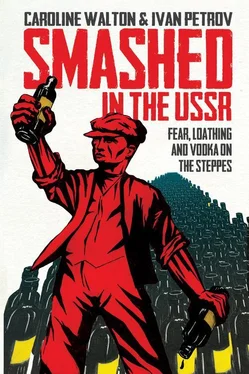
![Геннадий Марченко - Перезагрузка или Back in the Ussr. Книга 1. [СИ]](/books/53319/gennadij-marchenko-perezagruzka-ili-back-in-the-uss-thumb.webp)
